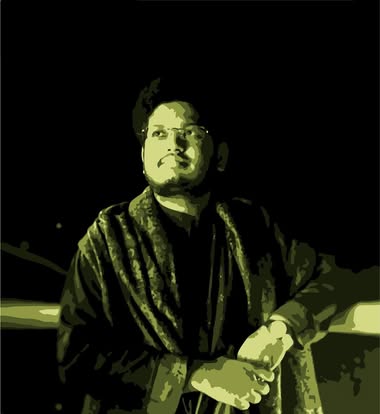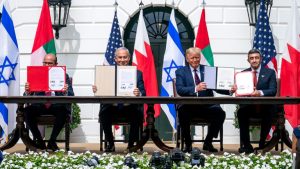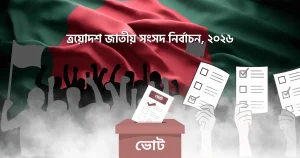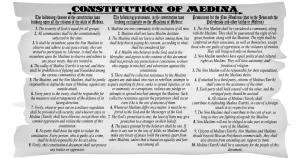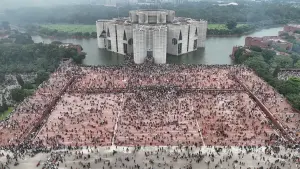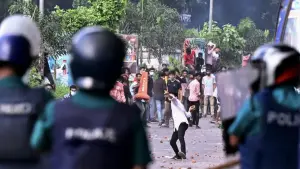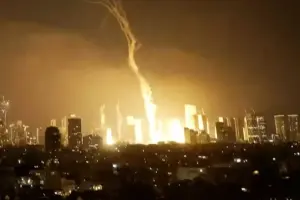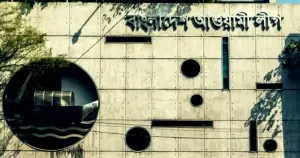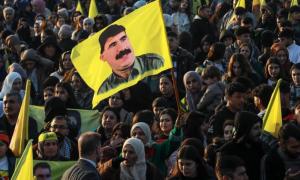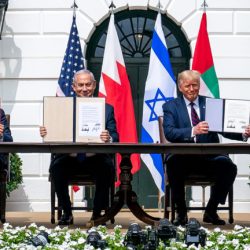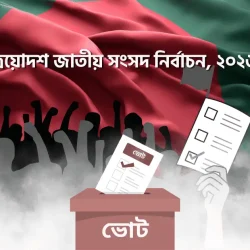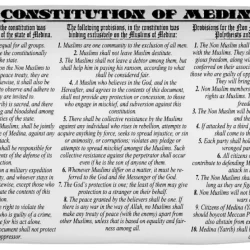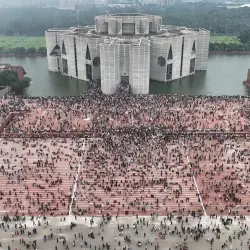India, often referred to as the world’s largest democracy, has long been celebrated for its diversity and pluralism. However, the treatment of minority communities, particularly Muslims and Dalits, has come under scrutiny in recent years. The Indian government’s policies and actions have been criticized by human rights groups, activists, and scholars for oppressing and suppressing minority communities. From the use of detention centers to discriminatory laws and police brutality, the government’s actions threaten the fundamental rights and freedoms of minority communities in India. In this article, we will examine recent incidents, and facts to provide insights into how minorities are being oppressed in India.
India’s discriminatory policy for Minorities
The BJP-led government has also been accused of propagating false claims and misrepresenting history to promote its Hindu nationalist agenda. The government’s actions have led to a rise in anti-Muslim sentiment and hate crimes, as well as violence against other minority communities.
HRW’s South Asia director Meenakshi Ganguly said that “The BJP governments at every level have adopted discriminatory laws and policies targeting religious minorities, and its leaders and affiliates make frequent anti-minority remarks, including inciting violence.”
In 2019, the Indian government introduced the National Register of Citizens (NRC) and the Citizenship Amendment Act (CAA), both of which were passed. This contentious law, which has yet to be implemented, allows Hindu, Sikh, Buddhist, Jain, Parsi, and Christian migrants from Afghanistan, Bangladesh, and Pakistan to obtain citizenship more quickly. Immigrant Muslims are not included.
The government’s efforts to use the Hindu majority as a voting bloc have also been criticized. The BJP has been accused of dividing voters along religious lines by exploiting the Ayodhya temple dispute and the Ram Janmabhoomi-Babri Masjid dispute.
Is Modi scared of India’s textbook history?
In India, we have witnessed riots, lynchings, vigilante violence, demolition of Muslim homes, and police brutality against Muslims. Violence in more indirect and structural forms has also increased. The renaming of Muslim cities, towns, villages, streets, and even buildings, as well as the removal of chapters on Muslim history from official textbooks and the creation of a new history of India in which Muslims play no positive role, exacerbates the situation for minorities. Furthermore, hate speech against Muslims is frequently featured in the political narratives created and promoted by elected officials.
India’s discrimination against minorities manifests itself through institutionalized discrimination. For example, Dalits, who are considered to be at the bottom of India’s caste system, face significant social and economic disadvantages. Discrimination against Dalits is also prevalent in the job market, with many Dalits being excluded from certain occupations or industries.
The government’s treatment of minorities has drawn comparisons to Israel’s policy towards Palestine and China’s treatment of Uyghur Muslims. Like Israel, the Indian government has been accused of using apartheid-like policies to suppress minority communities. For example, the government has restricted the movement of people in and out of Muslim-majority areas in Kashmir, using a military curfew to limit access to essential services and communications. Meanwhile, the Indian government’s recent policies targeting Muslim communities bear a striking resemblance to the Chinese government’s treatment of Uyghur Muslims in Xinjiang province.
How BJP-led govt caging Minorities
One of the most alarming trends in recent years has been the use of detention centers to hold individuals who are suspected of being undocumented migrants or who are unable to prove their citizenship. The majority of individuals held in these centers are Muslims, and many of them are victims of the controversial National Register of Citizens (NRC) and Citizenship Amendment Act (CAA) that was passed in 2019.
According to a report by the United Nations Special Rapporteur on minority issues, there are approximately 2 million people in Assam, a state in northeastern India, who risk becoming stateless as a result of the NRC. The report also noted that Muslims are disproportionately affected by the NRC and that the process of proving citizenship is discriminatory and arbitrary.
Secular India and the Nature of its so-called Secularism
The CAA has also been widely criticized by human rights groups for discriminating against Muslims and violating India’s secular constitution, which prohibits discrimination on the basis of religion. The law has sparked widespread protests across the country, with demonstrators calling for its repeal.
In addition to the NRC and CAA, there have been numerous reports of police brutality and harassment against Muslims and other minority communities. According to a report by Human Rights Watch, there have been at least 11 incidents of communal violence in India since the CAA was passed, many of which were carried out by Hindu nationalist mobs targeting Muslims.
The COVID-19 pandemic has further exacerbated the situation for minority communities in India. Muslims were blamed for spreading the virus after attending a religious gathering in Delhi in March 2020, leading to a surge in anti-Muslim sentiment and hate crimes. Dalits, who are often employed in low-wage jobs such as sanitation workers, have been disproportionately affected by the pandemic and the subsequent lockdowns.
The government and pro-government mobs made hundreds of incidents where they attacked communities other than the Hindus. On January 1, 2018, thousands of Dalits gathered to commemorate the 200th anniversary of the Bhima Koregaon battle in Maharashtra, in which Dalit soldiers fought against the British East India Company. However, violence broke out between the Dalit protestors and right-wing Hindu groups who opposed the commemoration, leading to clashes and vandalism.
Following the violence, the Maharashtra police carried out a crackdown on activists and intellectuals who were seen as sympathetic to the Dalit cause. Several prominent activists, including Sudha Bharadwaj, Varavara Rao, and Gautam Navlakha, were arrested on charges of inciting violence and supporting Maoist groups.
Recent incidents have also highlighted the Indian government’s suppression of dissent and free speech. In January 2021, Indian authorities arrested 22-year-old climate activist Disha Ravi for allegedly sharing a toolkit on social media in support of ongoing farmers’ protests. Ravi’s arrest sparked outrage from activists and politicians, who criticized the government for cracking down on dissent.
What steps should be taken?
The oppression of minority communities in India is a complex issue that requires a multifaceted approach to resolve. It is important for the Indian government to take urgent action to address the situation and ensure that all citizens, regardless of their religion or caste, are treated with dignity and respect.
First of all, for the government of India, the Indian government must act as a responsible authority and stop provoking oppression against minorities. It is important for the government to recognize that minorities are an integral part of the fabric of Indian society and should be treated with dignity and respect.
Is the RSS a Threat to India’s Secularism?
The government should also refrain from using divisive tactics to play different communities against each other. Instead, it should work to promote unity and diversity and create an environment where people from all backgrounds can coexist peacefully.
Furthermore, it is important for the government to ensure that minorities have equal access to opportunities, resources, and services. This includes ensuring that minorities have equal access to education, healthcare, employment, and other essential services.
The Indian government has a responsibility to uphold the rights and dignity of all its citizens, regardless of their religion, color, race, or ethnicity. By taking proactive measures to address the oppression of minorities, the government can help create a more just and equitable society for all.
Along with these, one of the key steps the Indian government can take is to repeal the Citizenship Amendment Act (CAA) and halt the National Register of Citizens (NRC) process, which has disproportionately affected Muslims and other minority communities. The government should also stop using detention centers to hold individuals suspected of being undocumented migrants, as these centers have been criticized for their poor conditions and lack of due process.
In addition to these policy changes, the Indian government should take steps to promote interfaith dialogue and understanding, and to combat hate speech and incitement to violence. This can include investing in education and media programs that promote tolerance and understanding among different communities.
For the international community, it can also play a crucial role in addressing the situation in India. Governments and civil society organizations around the world can put pressure on the Indian government to uphold the rights of minority communities and ensure that they are not discriminated against on the basis of their religion or caste.
The United Nations can also play a role in monitoring the situation in India and holding the Indian government accountable for any human rights violations. The international community can also provide support to civil society organizations and human rights defenders who are working to promote human rights and justice in India.
For the people in general, at the grassroots level, there are also steps that ordinary people can take to support minority communities in India. This can include donating to organizations that provide legal aid and support to marginalized communities, engaging in interfaith dialogue and solidarity activities, and speaking out against hate speech and discrimination.
A simple guide to What is happening in Sudan
Ultimately, addressing the situation in India requires a sustained and collective effort from all stakeholders, including the Indian government, civil society organizations, the international community, and ordinary people. By working together, we can promote a more inclusive and just society that upholds the rights and dignity of all its citizens, regardless of their culture, race, or religion.
India must stop apartheid activities
The treatment of minority communities in India has been a cause for concern for many years, but recent developments suggest that the situation is getting worse. The use of detention centers, discriminatory laws, and police brutality threatens the fundamental rights and freedoms of minority communities in India. The government must take urgent action to address these issues and ensure that all citizens, regardless of their religion or caste, are treated with dignity and respect.
